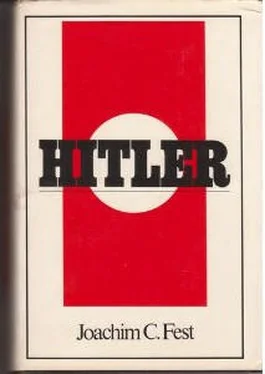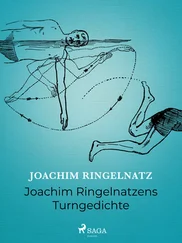Joachim Fest - Hitler
Здесь есть возможность читать онлайн «Joachim Fest - Hitler» весь текст электронной книги совершенно бесплатно (целиком полную версию без сокращений). В некоторых случаях можно слушать аудио, скачать через торрент в формате fb2 и присутствует краткое содержание. Город: New York, Год выпуска: 1974, ISBN: 1974, Издательство: A Harvest Book, Жанр: Биографии и Мемуары, на английском языке. Описание произведения, (предисловие) а так же отзывы посетителей доступны на портале библиотеки ЛибКат.
- Название:Hitler
- Автор:
- Издательство:A Harvest Book
- Жанр:
- Год:1974
- Город:New York
- ISBN:9780151416509
- Рейтинг книги:5 / 5. Голосов: 1
-
Избранное:Добавить в избранное
- Отзывы:
-
Ваша оценка:
- 100
- 1
- 2
- 3
- 4
- 5
Hitler: краткое содержание, описание и аннотация
Предлагаем к чтению аннотацию, описание, краткое содержание или предисловие (зависит от того, что написал сам автор книги «Hitler»). Если вы не нашли необходимую информацию о книге — напишите в комментариях, мы постараемся отыскать её.
Index. Translated by Richard and Clara Winston. A Helen and Kurt Wolff Book
Hitler — читать онлайн бесплатно полную книгу (весь текст) целиком
Ниже представлен текст книги, разбитый по страницам. Система сохранения места последней прочитанной страницы, позволяет с удобством читать онлайн бесплатно книгу «Hitler», без необходимости каждый раз заново искать на чём Вы остановились. Поставьте закладку, и сможете в любой момент перейти на страницу, на которой закончили чтение.
Интервал:
Закладка:
But this respectability overlaid an obviously unstable temperament marked by a propensity for impulsive decisions. Among other things, his frequent changes of residence suggest a restiveness that the sober practical work of the customs service could not satisfy. He moved at least eleven times in barely twenty-five years—although some of these moves were connected with his job. He also married three times. While his first wife was still alive, his subsequent second wife expected a child by him, and the same was true for the subsequent third during the life of the second. His first wife, Anna Glassl, was fourteen years his senior; his last, Klara Pölzl, twenty-three years younger. She had first entered his household as a maid. Like the Hiedlers or Huttlers, she came from Spital; and after his change of name she was his niece, at least legally, so that a dispensation from the church had to be obtained for them to marry. The question of whether she was indeed related to him by blood remains as unanswerable as the question of who Alois Hitler’s father was. She quietly and conscientiously carried out her domestic tasks, regularly attended church—in accordance with her husband’s wishes—and was never quite able to rise above the status of housemaid and bedmate. For many years she had difficulty in regarding herself as the customs official’s wife, and used to address her husband as “Uncle Alois.” Her picture shows the face of a modest village girl, earnest, impassive, with a trace of despondency.
Adolf Hitler, born April 20, 1889, in Braunau am Inn, in the suburban house numbered 219, was the fourth child of this marriage. Three older children, born 1885, 1886, and 1887, had died in infancy; of the two younger, only the sister, Paula, survived. The family also included the children of Alois’s second marriage, Alois and Angela. The small border town had no influence on Adolf’s development, for the following year his father was transferred to Gross-Schonau in Lower Austria. Adolf was three years old when the family moved again to Passau, and five when his father was transferred to Linz. In 1895 his father bought a farm of nearly ten acres in the vicinity of Lambach, site of a famous old Benedictine monastery where the six-year-old boy served as choir boy and acolyte. There, according to his own account, he often had the opportunity “to intoxicate myself with the solemn splendor of the brilliant church festivals.” 4But his father soon sold the farm again. That same year he retired on pension, at the age of only fifty-eight. Soon afterward he bought a house in Leonding, a small community just outside Linz, and settled down to his retirement years.
In spite of obvious signs of nervous instability, the dominant feature of this picture is one of respectable solidity and instinct for security. But the cloak of legend Hitler threw over this background (later, with the beginnings of the Hitler personality cult, to be embellished by melodramatic touches and sentimental embroidery) contrasts strongly with the reality. The legend suggests deep poverty and domestic hardship, with the chosen boy triumphing over these dire conditions and over the tyrannical efforts of an obtuse father to break the son’s spirit. In order to introduce a few effective touches of black into the picture, the son actually made Alois a drunkard. Hitler tells of scolding and pleading with his father in scenes “of abominable shame,” tugging and pulling him out of “reeking, smoky taverns” to bring him home.
Hitler portrays himself as invariably victorious in battles on the village common and in the vicinity of the old fortress tower—nothing else would be in keeping with the precocity of genius. According to his story, the other boys accepted him as a born leader, and he was always ready with masterful plans for knightly adventures and exploration projects. Through these innocent games young Adolf developed an interest in warfare and the soldier’s trade that pointed toward the future. In retrospect the author of Mein Kampf discovered “two outstanding facts as particularly significant” about the “boy of barely eleven”: that he had become a nationalist and had learned “to understand and grasp the meaning of history.” 5The whole fable is brought to a neat and affecting conclusion with the father’s sudden death, the privations, illness, and death of the beloved mother, and the departure of the poor orphaned boy “who at the age of seventeen had to go far from home and earn his bread.”
In reality Adolf Hitler was a wide-awake, lively, and obviously able pupil whose gifts were undermined by an incapacity for regular work. This pattern appeared quite early. He had a distinct tendency to laziness, coupled with an obstinate nature, and was thus more and more inclined to follow his own bent. Aesthetic matters gave him extraordinary pleasure. However, the reports of the various grammar schools he attended show him to have been a good student. On the basis of this, evidently, his parents sent him to the Realschule, the secondary school specializing in modern as opposed to classical subjects, in Linz. Here, surprisingly, he proved a total failure. Twice he had to repeat a grade, and a third time he was promoted only after passing a special examination. In diligence his report cards regularly gave him the mark Four (“unsatisfactory”); only in conduct, drawing, and gymnastics did he receive marks of satisfactory or better; in all other subjects he scarcely ever received marks higher than “inadequate” or “adequate.” His report card of September, 1905, noted “unsatisfactory” in German, mathematics, and stenography. Even in geography and history, which he himself called his favorite subjects and maintained that he “led the class,” 6he received only failing grades. On the whole, his record was so poor that he left the school.
This debacle is unquestionably due to a complex of reasons. One significant factor must have been humiliation. If we are to believe Hitler’s story that in the peasant village of Leonding he was the uncontested leader of his playmates—not altogether improbable for the son of a civil servant, given the self-esteem of officialdom in Imperial Austria—his sense of status must have suffered a blow in urban Linz. For here he found himself a rough-hewn rustic, a despised outsider among the sons of academics, businessmen, and persons of quality. It is true that at the turn of the century Linz, in spite of its 50,000 inhabitants, was still pretty much of a provincial town with all the dreariness and somnolence the term connotes. Nevertheless, the city certainly impressed upon Hitler a sense of class distinctions. He made “no friends and pals” at the Realschule. Nor was the situation any better at the home of ugly old Frau Sekira, where for a time he boarded with five other schoolmates his age during the school week. He remained stiff, aloof, a stranger. One of the former boarders recalls: “None of the five other boys made friends with him. Whereas we schoolmates naturally called one another du, he addressed us as Sie, and we also said Sie to him and did not even think there was anything odd about it.” Significantly, Hitler himself at this time first began making those assertions about coming from a good family which in the future unmistakably stamped his style and his manner. The adolescent fop in Linz, as well as the subsequent proletarian in Vienna, would seem to have acquired a tenacious “class consciousness” and a determination to succeed.
Hitler later represented his failure at secondary school as a way of defying his father, who wanted to steer him into the civil service where the father himself had had so successful a career. In after years Hitler told a vivid story about being taken to the main customs office in Linz; his father hoped the visit would fill him with enthusiasm for the profession, while he himself was filled with “repugnance and hatred” and could see the place only as a “government cage” in which “the old men sat crouching on top of one another, as close as monkeys.” But the description of the allegedly prolonged conflict, which Hitler dramatized as a grim struggle between two men of iron will, has since been exposed as pure fantasy.
Читать дальшеИнтервал:
Закладка:
Похожие книги на «Hitler»
Представляем Вашему вниманию похожие книги на «Hitler» списком для выбора. Мы отобрали схожую по названию и смыслу литературу в надежде предоставить читателям больше вариантов отыскать новые, интересные, ещё непрочитанные произведения.
Обсуждение, отзывы о книге «Hitler» и просто собственные мнения читателей. Оставьте ваши комментарии, напишите, что Вы думаете о произведении, его смысле или главных героях. Укажите что конкретно понравилось, а что нет, и почему Вы так считаете.





![Traudl Junge - Hitler's Last Secretary - A Firsthand Account of Life with Hitler [aka Until the Final Hour]](/books/416681/traudl-junge-hitler-s-last-secretary-a-firsthand-thumb.webp)






